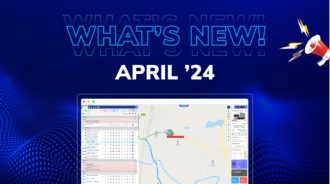In today’s fast-paced world, efficient fleet management is a cornerstone of success for many businesses. One of the key components in achieving this efficiency is the use of advanced dispatch scheduling software. This type of software has transformed how businesses manage their fleets, offering numerous benefits that streamline operations and improve overall performance. In this detailed exploration, we’ll delve into the top advantages of using dispatch scheduling software, particularly highlighting its role in modern fleet management systems.
What is Dispatch Scheduling Software?
Dispatch Scheduling Software is a specialized program designed to facilitate the management of dispatch operations in various industries, particularly those involving fleet management and logistics. It serves as a centralized platform that coordinates and optimizes the assignment of vehicles and personnel to different tasks and locations.
Key Features: The Pillars of Functionality
Automated Scheduling and Dispatching
The software automates the process of assigning drivers and vehicles to specific jobs, considering factors like location, availability, and job requirements.
Real-Time Tracking
Integrating GPS technology, it offers real-time tracking of vehicles, providing up-to-the-minute updates on location and status.
Route Optimization
The software is equipped with algorithms that calculate the most efficient routes, saving time and reducing fuel costs.
Communication Tools
Built-in communication features facilitate seamless interaction between dispatchers, drivers, and customers, enhancing coordination and response times.
Analytics and Reporting
It provides insightful analytics and detailed reports on various aspects like fleet performance, driver behavior, and fuel usage, aiding in informed decision-making.
Integration Capabilities
The software can often be integrated with other systems such as customer relationship management (CRM) and enterprise resource planning (ERP) systems, creating a cohesive management ecosystem.
Applications: Where Dispatch Scheduling Software Makes a Difference
Transportation and Logistics
Enhancing the efficiency of delivery operations, ensuring timely dispatches, and optimizing routes.
Emergency Services
Critical for ambulance and fire services where timely response is crucial.
Field Service Management
Useful for businesses that provide on-site services like repairs, maintenance, or installation.
Public Transportation
Helps in managing bus, taxi, or other public transport services, ensuring timely and efficient operations.
Benefits of Dispatch Scheduling Software
When businesses implement Dispatch Scheduling Software, they unlock a range of benefits that significantly enhance their operations
Simplifying Complexity: The Ease of Dispatch Scheduling Software
Dispatch Scheduling Software is a multifaceted tool designed to streamline the complexity of fleet management and dispatch operations. Here’s a more detailed exploration of its features and capabilities:
Advanced Scheduling Capabilities
Automated Scheduling:
The software automates the process of scheduling deliveries, pickups, and services. By considering factors like driver availability, vehicle capacity, and customer preferences, it creates the most efficient schedules without manual intervention.
Dynamic Scheduling:
It allows for dynamic adjustments. If a driver calls in sick or a vehicle breaks down, the software can automatically reassign tasks to other team members, ensuring minimal disruption to the schedule.
Pre-planned vs. On-Demand Dispatching:
The software caters to both pre-planned schedules and on-demand dispatching, providing flexibility to handle routine operations as well as urgent requests effectively.
Enhanced Routing Efficiency
Traffic Pattern Analysis:
By analyzing traffic patterns and historical data, the software predicts the best routes, helping to avoid traffic congestion and delays.
Tailored Routing:
The software can tailor routes based on specific vehicle characteristics (like size and cargo type) and driver expertise, ensuring safety and compliance with regulatory requirements.
Real-Time Tracking and Adjustments
GPS Integration:
The integration of GPS technology provides real-time visibility of fleet locations, enabling dispatchers to make informed decisions on-the-fly.
Instant Communication:
Instant communication capabilities allow dispatchers to send route changes or new instructions directly to drivers, improving response times and adaptability.
Status Updates:
Real-time updates on delivery statuses and estimated times of arrival (ETAs) enhance transparency and enable proactive customer service.
Enhancing Efficiency: The Smart Way to Manage Your Fleet
The role of Dispatch Scheduling Software in enhancing the efficiency of fleet management cannot be overstated. Here, we delve deeper into the aspects that contribute to this enhanced efficiency:
Advanced Route Optimization
Dynamic Routing:
The software utilizes advanced algorithms to calculate the most efficient routes, taking into account various factors such as traffic conditions, road closures, and weather. This dynamic routing capability ensures that drivers are always on the quickest and safest paths.
Multiple Stops Planning:
For businesses with multi-stop deliveries, the software can optimize the order of stops, ensuring the shortest possible route, thus saving time and reducing fuel consumption.
Geofencing:
Some systems include geofencing capabilities, allowing businesses to set geographic boundaries for their vehicles, which helps in better route management and adherence to delivery zones.
Improved Fleet Utilization
Vehicle Allocation:
The software intelligently assigns vehicles to tasks based on their location, availability, and suitability for the job, ensuring optimal use of each vehicle in the fleet.
Capacity Maximization:
By understanding the capacity and capabilities of each vehicle, the software helps in maximizing load efficiency, ensuring that vehicles are neither overburdened nor underutilized.
Reduced Idle Time
Active Monitoring:
Real-time tracking enables fleet managers to monitor vehicle idle times actively. By analyzing this data, strategies can be developed to minimize idling, thus saving fuel and reducing emissions.
Driver Accountability:
The software can provide insights into driver behavior, including idle time and route adherence, promoting more responsible and efficient driving practices.
Enhanced Driver Performance
Optimal Scheduling:
By considering driver schedules and availability, the software ensures that drivers are not overworked, promoting better performance and reducing the risk of fatigue-related incidents.
Driving Behavior Analysis:
Some systems offer analysis of driving behavior, providing feedback on aspects like speeding, harsh braking, or idle time. This information can be used for driver training and performance improvement.
Eco-Friendly Operations
Reduced Carbon Footprint:
By optimizing routes and reducing idle times, dispatch scheduling software plays a significant role in reducing the carbon footprint of fleet operations.
Fuel Efficiency:
Efficient route planning and vehicle utilization lead to significant fuel savings, which is not only beneficial financially but also environmentally.
Cost-Effective Solutions: Saving Money with Advanced Technology
Lower Operational Costs
By optimizing routes and reducing idle time, dispatch scheduling software directly contributes to lower operational costs. Less fuel consumption and improved vehicle maintenance schedules can result in substantial savings.
Enhanced Customer Satisfaction
Efficient dispatching and scheduling lead to more on-time deliveries and services. This reliability enhances customer satisfaction, which is crucial for business growth and reputation.
Data-Driven Decisions: Leveraging Information for Better Management
Insightful Reports and Analytics
Dispatch scheduling software often comes with analytics tools. These provide valuable insights into fleet performance, driver behavior, and other critical metrics. Armed with this data, managers can make informed decisions to improve efficiency and productivity.
Predictive Maintenance
Advanced systems also offer predictive maintenance features. The software can predict when maintenance is needed by monitoring vehicle health and usage patterns, thereby preventing breakdowns and costly repairs.
Integration and Compatibility: The Cornerstone of Modern Fleet Management
Seamless Integration with Other Systems
A major advantage of dispatch scheduling software is its ability to integrate with other business systems, such as inventory management and billing software. This creates a more cohesive and efficient workflow.
Compatibility with Diverse Fleets
Dispatch scheduling software is designed to be compatible with fleets of all sizes and types, whether you’re managing a small local delivery service or a large transportation company.
Conclusion
Dispatch scheduling software is more than just a tool; it’s a comprehensive solution that revolutionizes fleet management. From optimizing routes to reducing operational costs, the benefits are clear and impactful. As we move forward, this technology will continue to play a vital role in shaping the efficiency and success of businesses worldwide.



